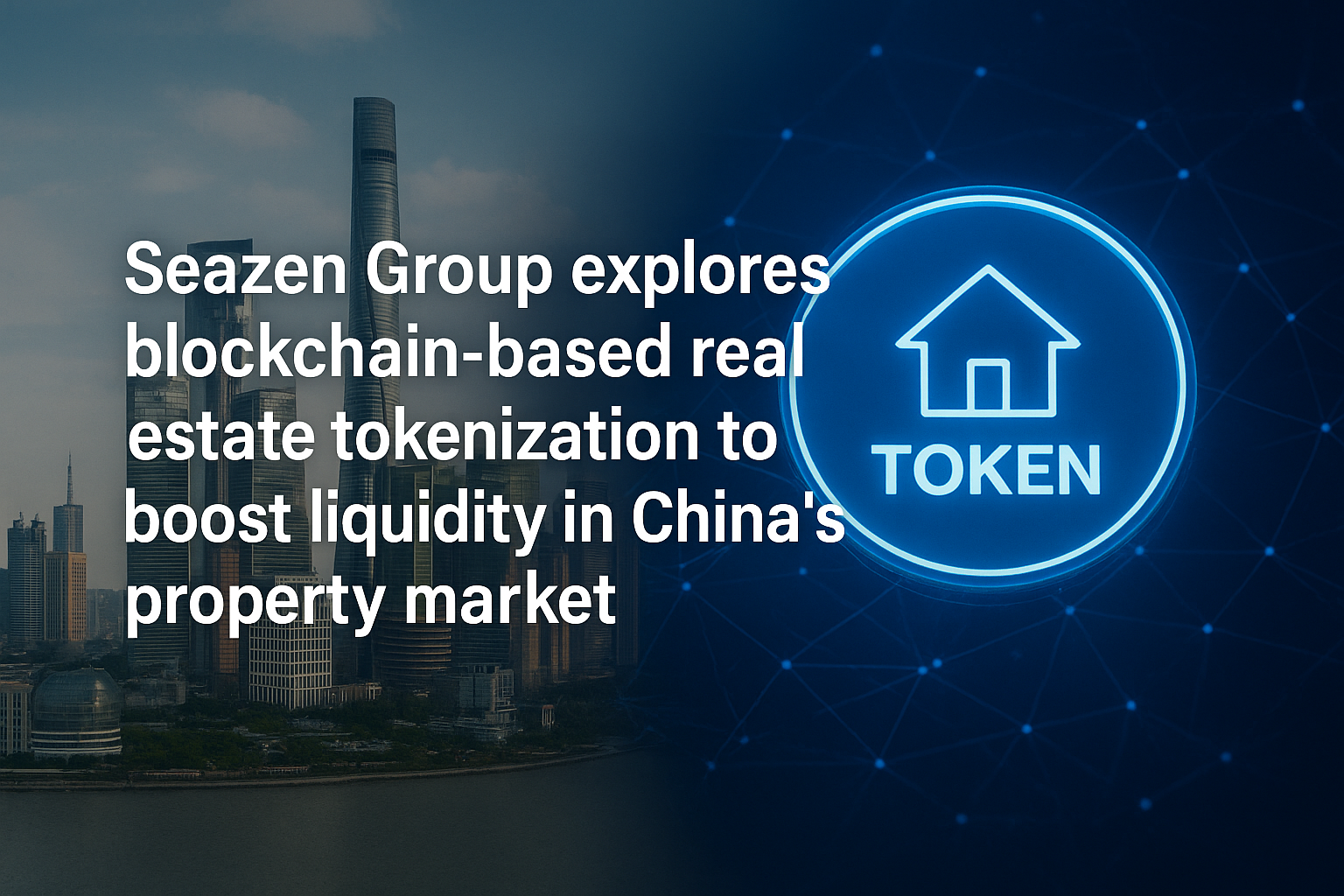China’s real estate market, long a pillar of the country’s economic growth, is facing pressure from slowing demand, tightening credit conditions, and an urgent need for new sources of capital. In response, Seazen Group—a major Chinese property developer—has announced plans to tokenize a wide range of real-world assets (RWAs), including real estate holdings, intellectual property, and future income streams, using blockchain technology.
The move reflects a growing trend among developers and financial institutions seeking innovative methods to attract investment. By leveraging blockchain, Seazen aims to create digital tokens backed by tangible assets. These tokens could be traded on regulated platforms, giving investors more flexible access to China’s property sector—historically a market with high entry barriers and low liquidity.
Why tokenization now?
China’s property market has been under significant strain since the government imposed “three red lines” policies to curb excessive borrowing. Many developers, even large ones, have struggled to refinance their debt. Tokenization offers a way to tap into alternative capital sources by transforming illiquid holdings into fractional, tradeable units.
Potential benefits for investors
-
Increased liquidity: Traditional real estate deals can take months to complete. Tokenized assets could change hands instantly on digital platforms.
-
Lower investment thresholds: Instead of requiring millions in upfront capital, tokenization allows smaller investors to participate in high-value property projects.
-
Transparent ownership records: Blockchain’s immutable ledger reduces risks of fraud and improves investor confidence.
Risks and regulatory hurdles
Despite its promise, tokenization raises complex regulatory questions. Chinese authorities have historically taken a cautious stance toward crypto-related activities. While tokenized RWAs differ from cryptocurrencies—because they’re directly backed by real-world collateral—regulators will still need to address concerns around investor protection, cross-border capital flow, and compliance with financial laws.
A glimpse of the future
If Seazen’s experiment succeeds, it could pave the way for broader adoption of blockchain in real estate financing. The ability to tokenize intellectual property and revenue streams—beyond just physical assets—could reshape how developers fund projects and how global investors access Chinese real estate.
As traditional funding channels narrow, tokenization may become a crucial tool for developers facing liquidity crunches. While challenges remain, Seazen’s move signals that the intersection of blockchain and real estate is no longer theoretical—it’s happening now.



